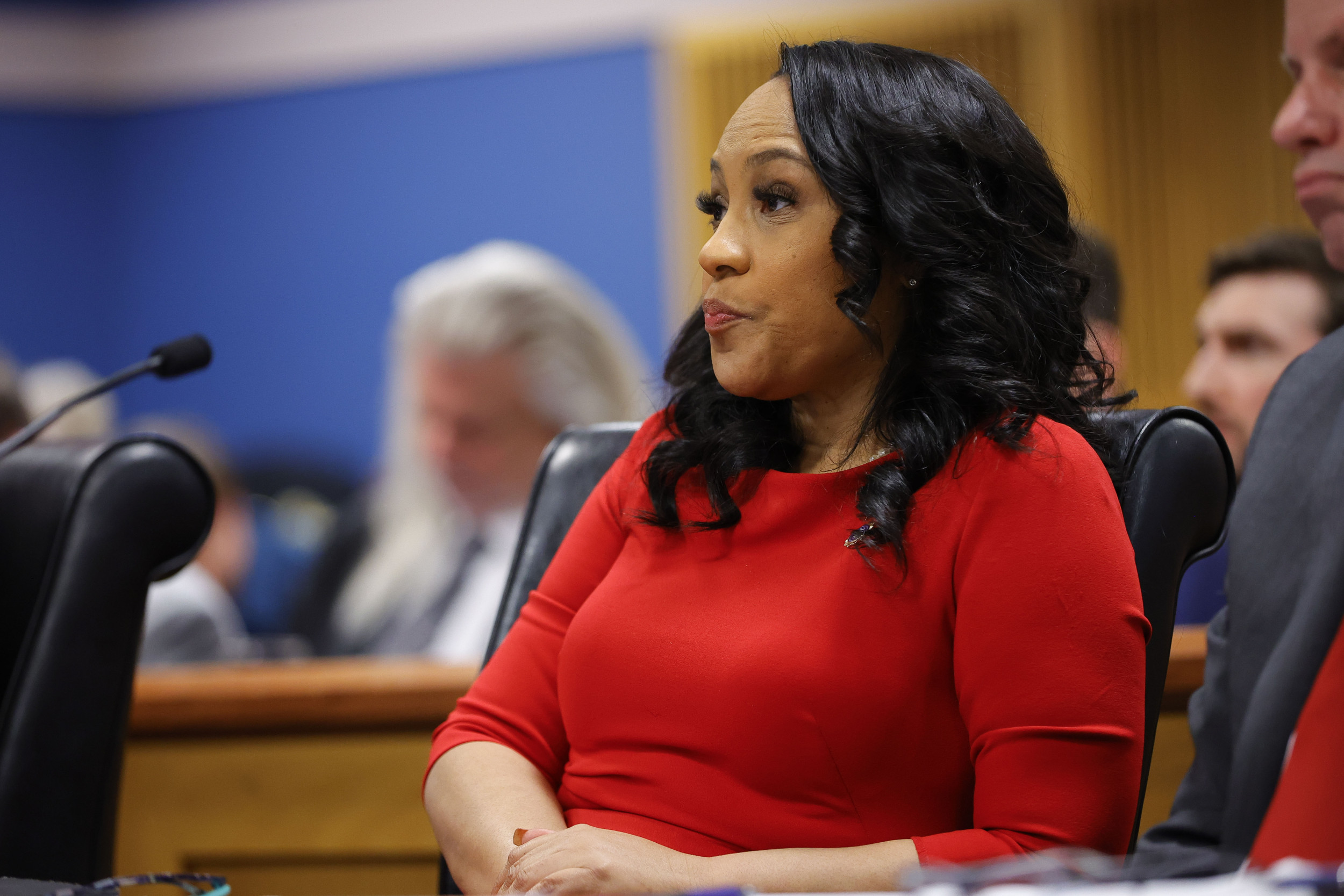Over the first 18 months of President Joe Biden's term, U.S.-Iran relations have been dominated by nuclear diplomacy that never seems to die. But there is a larger dispute between Washington and Tehran percolating under the surface—and if it's not adequately managed, it could increase tensions in the Middle East and possibly boil over into a confrontation.
Even as the U.S. and Iran keep the pretense of nuclear talks alive, both states are engaged in a classic security dilemma. The U.S. and its partners in the region are working to enhance their own security through a series of defensive measures. Last week a pair of U.S. B-52 bombers, flanked by Israeli, Saudi, and Kuwaiti fighter aircraft, conducted a presence mission over the Arabian Peninsula and Red Sea (the Israeli planes only participated when the B-52s flew in Israeli airspace). Yet Iran views these same defensive actions as threatening to its security, compelling it to respond with measures of its own. The result, over time, is that both sides become less secure in the long run.
Biden's trip to the Middle East in July is a case in point. The meetings came at a time when the Middle East is undergoing dramatic political shifts. Israel and Saudi Arabia, for instance, are forging a closer relationship with each other, driven by a desire to contain Iran, which both regard as their primary national security threat. Riyadh isn't alone in this endeavor. In March, top military officers from Israel and several Arab-majority nations, including Saudi Arabia, Qatar, Jordan and Egypt, met in the Egyptian resort town of Sharm el-Sheikh to deliberate about what military cooperation between them would look like. The top item on the agenda: defending against Iranian missiles and drones. For countries like Saudi Arabia and the United Arab Emirates (UAE), Tehran's principal rivals in the region, Iran's asymmetric military capabilities are nothing to dismiss; in one of the most infamous attacks in the kingdom's history, a combination of suicide drones and cruise missiles, likely conducted by Iran, hit multiple targets at two key Saudi oil installations, reducing the kingdom's oil production capacity by half.
For the Saudis and the Emiratis, mutually beneficial security ties with Israel, the region's strongest military power, is a common-sense defensive measure. Such an arrangement would also be a boon for Israel, which has made major strides in normalizing its diplomatic relationships with several Arab-majority states even before the 2020 signing of the Abraham Accords. And for the U.S., a growing symmetry of interests between partners in the region would theoretically provide Washington with the opportunity to downsize its own role in the Middle East.
Iran, however, views a prospective Israel-Gulf Arab military partnership as a significant danger to its own security, especially if it was underwritten by Washington. With the exception of Bashar al-Assad's Syria, which is too weak, poor, and dependent on Iranian military support to be of much use, Iran doesn't have any capable state allies in the region. While Hezbollah, Hamas, and the Houthis all receive Iranian support, it's an open question whether they would come to Iran's defense in the event of a conflict. Iran's $24.6 billion defense budget, meanwhile, doesn't come close to Saudi Arabia's, which spent approximately $55 billion on its military last year.

Tehran understands it lives in a difficult neighborhood, and it has no intention of sitting still as its adversaries flirt with an alignment. Iran receiving Russian President Vladimir Putin with open arms in July, and the Iranians are selling Russia homemade armed drones for use in Ukraine, the sort of commercial transaction that could slowly build into a more systemic military relationship. Surrounded by adversaries and confronting a possible Israel-Gulf Arab bloc supported by the U.S., the Iranians are attempting to form a counter-balancing coalition with Russia and China—two powers that, like Iran, have first-hand experience with U.S. sanctions and shared objective of undermining the U.S.-dominated order.
The Iranians are likely to respond in other ways as well. Although a comprehensive security partnership between Israel, Saudi Arabia, and the UAE is geared toward minimizing Iran's ballistic missile threat, such a pact will inadvertently persuade Tehran to double down on ballistic missile development to defeat those very same missile defenses.
At 3,000, Tehran already possesses the largest missile inventory in the Middle East. Cut off from Western military technology and left with a conventional military that is antiquated at best, the Iranians have invested considerable resources into fielding a diverse missile program and are using their space program to modify it. Washington and its partners should expect Iran to continue doing so in the years ahead, especially if the Biden administration intends to create a regional air defense system crafted specifically to counter Iran's asymmetric advantages.
Does this mean Israel, Saudi Arabia, and the rest of the Gulf states shouldn't cooperate on a shared security challenge? Not necessarily.
But we shouldn't delude ourselves into thinking a hypothetical anti-Iran partnership will push the Iranians toward a more constructive foreign policy. What the U.S., Israel, and Arab-majority states view as a strictly defensive action, Iran will interpret as an act of aggression that constricts its freedom of movement and decreases its power. The security dilemma is alive and well—and it's vital for policymakers to acknowledge it.
Daniel R. DePetris is a fellow at Defense Priorities and a foreign affairs columnist at Newsweek.
The views expressed in this article are the writer's own.
Uncommon Knowledge
Newsweek is committed to challenging conventional wisdom and finding connections in the search for common ground.
Newsweek is committed to challenging conventional wisdom and finding connections in the search for common ground.
About the writer
To read how Newsweek uses AI as a newsroom tool, Click here.





